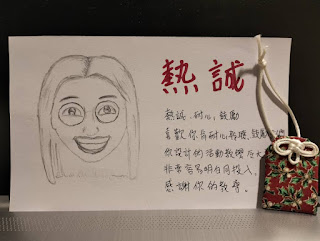KBI XII Tahun 2023
Tema : Penginternasionalan Bahasa
Indonesia
Subtema : Optimalisasi Peran
Perwakilan, Mitra Kerja, dan Diaspora Indonesia di Luar Negeri dalam
Internasionalisasi Bahasa Indonesia
PENGUATAN BAHASA
INDONESIA DI TINGKAT INTERNASIONAL:
POTENSI, TANTANGAN,
DAN KOLABORASI DENGAN KOMUNITAS
Potensi bahasa Indonesia ke depannya semakin besar seiring dengan
perkembangan pasar global dan minat bisnis serta investasi mancanegara yang
semakin mengarah ke Indonesia. Dengan populasi Indonesia yang sangat besar
sebagai bagian pasar global, peluang untuk memperluas penggunaan Bahasa
Indonesia di ranah internasional semakin meningkat (CNBC Indonesia, 2020).
Dalam mengajarkan Bahasa Indonesia kepada non-natif, pengajaran formal melalui
program BIPA (Bahasa Indonesia bagi Penutur Asing) telah dilakukan di beberapa
negara untuk memperkenalkan dan memberdayakan bahasa Indonesia secara
internasional (Kementerian Luar Negeri RI, 2021).
Meskipun pengajaran Bahasa Indonesia melalui program BIPA telah berjalan
dengan baik, terdapat beberapa aspek yang dapat dikembangkan. Salah satu hal
yang penting adalah memberikan autentisitas dalam pembelajaran, di mana para
pelajar bahasa dapat mempelajari Bahasa Indonesia sebagaimana adanya dalam
konteks komunikasi sehari-hari. Dengan adanya kelompok-kelompok bahasa yang
memungkinkan interaksi santai antara orang Indonesia di negara tersebut dan
warga lokal, terutama bagi mereka yang sedang belajar Bahasa Indonesia, akan
memberikan kesempatan untuk berkomunikasi dalam Bahasa Indonesia dalam
kehidupan sehari-hari (Dewi & Aryati, 2020).
Salah satu upaya yang dapat dilakukan adalah dengan mengadakan kegiatan rutin
mingguan atau bulanan melalui kerjasama dengan restoran atau kafe Indonesia,
serta melibatkan komunitas pemuda lokal. Melalui kolaborasi dengan pemuda dan
kelompok mahasiswa, para pelajar Bahasa Indonesia dapat merasa lebih dekat dan
nyaman dalam berbahasa Indonesia. Selain itu, perlu dilakukan peleburan antara
pelajar Bahasa Indonesia dengan komunitas Indonesia yang ada di negara tersebut
(Harjanto & Saragih, 2020). Berkomunikasi langsung dengan penutur asli
dalam belajar Bahasa Indonesia memberikan berbagai manfaat yang tidak dapat diperoleh
hanya melalui pembelajaran formal di kelas.
Berinteraksi dengan penutur asli membantu meningkatkan kemampuan
mendengarkan dan memahami Bahasa Indonesia yang digunakan dalam situasi nyata.
Penutur asli cenderung menggunakan kosakata, idiom, dan ungkapan yang mungkin
tidak diajarkan secara formal di kelas (Dewi & Aryati, 2020). Selain itu, komunikasi
langsung dengan penutur asli memungkinkan pelajar Bahasa Indonesia untuk
memahami budaya, norma, dan konteks sosial di mana bahasa tersebut digunakan.
Hal ini membantu memperluas pemahaman mereka tentang masyarakat Indonesia
secara keseluruhan (Harjanto & Saragih, 2020).
Dengan demikian, melalui kerja sama dan integrasi dengan komunitas
Indonesia di luar negeri, pengajaran Bahasa Indonesia dapat menjadi lebih
efektif dan memperkuat penggunaan Bahasa Indonesia dalam konteks kehidupan
sehari-hari.
Daftar
Rujukan
CNBC
Indonesia. (2020). Potensi Bahasa Indonesia dalam Industri Global.
Dewi, R., & Aryati, I.
(2020). BIPA for Language Enthusiasts in Indonesia and Abroad, 1st
International Conference on Language and Literature (ICLL).
Harjanto, H., & Saragih, S.
H. (2020). Bahasa Indonesia Learning for Foreigners: Perspectives from BIPA
Students in Indonesia, International Conference on Indonesian Economy and
Development.
Kementerian
Luar Negeri RI. (2020). Program BIPA.
*Ditulis pada 21 Juni 2023.















